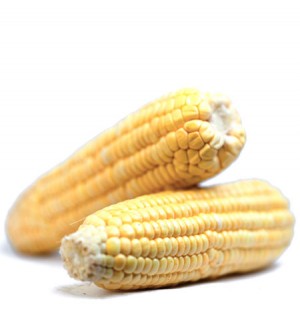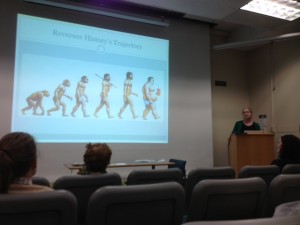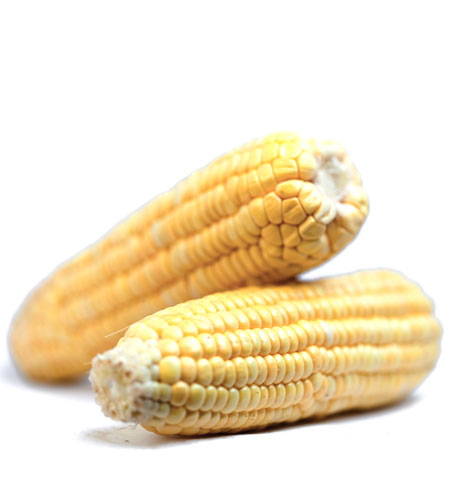“It’s your job to grind for the house.”
“You’ve got one in five of the population doing nothing but grinding.”

“You don’t have to grind on Sunday.”
On Monday night, food historian Rachel Laudan was able to incorporate all three of the above quotes into her presentation “What’s Not to Like about Industrial, Processed Food,” the third installment of this semester’s Gastronomy Lecture Series.
A bit confused?
Granted, out of context, these quotes probably make little to no sense. However, in context, though they may make more sense, they still appear to lack relevance in today’s society.
Laudan was referring to the grinding of maize to produce tortillas, a process she often witnessed while living in Mexico. Yet, when was the last time someone had to grind his or her own corn at BU? I mean, if we want tortillas, we can just run out to CityCo and get some.
Well, therein lies the point.
Laudan spoke about the benefits of industrially processed food in a nation obsessed with the “buy local/organic” craze. Basically, it boils down to this: don’t bite the hand that feeds you.
In the past, the quality of food sucked. Today, the world’s food holds the potential to support a healthier lifestyle and a higher quality of life. Laudan defended the relevance of her lecture, stating, “I’m trying to make a case for what’s good–we all know what’s bad.”
That’s probably true; however, most of us probably already know what’s good as well. I doubt many would argue against the fact that industrial processing (i.e. the use of technology to turn raw materials into more nutritious and delicious substances) has revolutionized the access and choice people have to food nowadays.

The entire lecture proved to be a lesson in semantic play.
No, we should not condemn processed food; it has certainly brought us far from the days of gruel and maize. However, today’s fight against the consumption of processed food isn’t claiming that it is inherently bad, but simply that people need to consider how often they utilize it in their diets without introducing other alternatives into their meals. The advice to “avoid processed foods” isn’t recommending a complete purge of all processed foods from one’s diet. The word “processed” conjures up an image of high-fat, high-sugar food; those are the foods being targeted by the anti-processed movement. The advice should not be taken to its literal end, and when one accepts the connotative definition of “processed,” the lecture loses its punch.
The “natural” food of today’s world in no way compares to what our ancestors had to subsist on—our generation obviously lucked out on that. Because of this, modern society can argue against processed food simply because the alternative is just as good–we don’t have the threat of reverting back to the pitiful meals of yesteryear. So really, how relevant is the argument that processed food is better than the natural food of the past, when that natural food isn’t even a viable option on our menus anymore?
About as relevant as grinding your own corn at BU.

